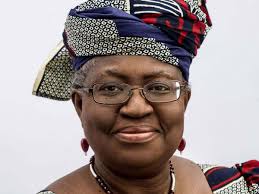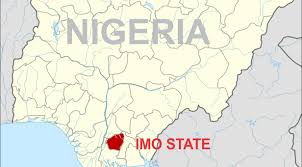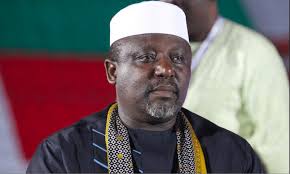“One who bathes willingly with cold water doesn’t feel the cold.” – African proverb
The emergence of Dr. Mrs Ngozi Okonjo Iwuala as World Trade Organization Director-General on 15 February 2021 is the affirmation of the “New Normal” and the beginning of everything colorful for Africa and the world. The first female to clinch such prominent position and first African to pilot the economy of the world through trade.
It’s inspiring to see African women reach such heights, a sign of the many strides the continent has made in gender parity. She defeated her closet contender, Yoo Myung-Hee from The Republic of Korea to emerge as DG World Trade Organization. A milestone reached. History made. This is happening when Monique Nsanzabaganwa, economist and deputy governor of Rwanda’s Central Bank, was elected as the African Union’s first female deputy chairperson, in mid-February 2021.
Suffice it to say that women are gradually ascending the responsibilities of world’s leadership politically and socially. Women are gaining importance in both international and domestic politics as they are occupying various important positions in national governments and multilateral organizations. We could recall that in the medieval period women are not allowed to participate in politics. Traditionally, women are considered to engage only with things that had to do with the the kitchen. NOI’s emergence has demystified the old culture which extinguished women from participating in decisions making process locally and internationally. A historic elevation of gender equality.
This article, however, is focused on the roles of the new D-G of WTO and her onerous responsibilities in working hand-in-glove with member countries in helping emerging economies in Africa to see the light of the day, creating the enabling environment for innovation in the global markets, compete favorably with other economies, establish favorable economic ties between Africa and the rest of the world, eliminating deficiency of vaccines in African countries and creating a viable supply chain for vaccine distribution, and developing a win-win approach toward fostering peace amongst members nations especially between the United States and the Republic of China. The economic imbroglio between the United States and the Republic of China has lingered for years and has affected trade and commerce and multilateral investments amongst nations.
Therefore, the new D-G must look for a subtle way to settle this economic conflict. This trade war has negatively impacted the economies of both the United States and China. In the United States, it has led to higher prices for consumers and financial difficulties for farmers. In China, the trade war contributed to a slowdown in the rate of economic and industrial output growth, which had already been on a decline.
Africa is a diverse continent offering human and natural resources, with the world’s largest free trade area and a 1.3 billion-person market, the continent is creating an entirely new development path, harnessing the potential of its resources and people.
However, the continent has been faced with lots of growth and developmental challenges for decades; ranging from unemployment, adverse impact of climate change, increasing water scarcity, biodiversity and ecosystem loss, desertification, low resilience to natural disasters, energy crisis, food crisis, political crisis, limited benefits from globalization, health security, the global financial crisis, trafficking and piracy, low penetration of ICT services, urbanization, need to develop better disaster response mechanisms, genetically modified crops in relation to food security and technology transfer among others.
Addressing these issues requires long-term solutions in the form of development and implementation of appropriate policy guidelines, institutional capacity-building and deployment of adequate resources. If necessary, the new D-G must enforce every available ‘political will’ needed in order to address these staggering issues impeding Africa from witnessing economic recovery.
NOI has worked constructively and successfully with international and local organizations which has empowered her intellectually and morally. The experiences gathered in the course of her work will serve as powerful tools in engineering the most efficient and effective ways of handling multilateral engagements amongst members of World Trade Organization. NOI must focuse on bridging gaps to reach agreement that maximize the overall welfare of the parties involved. She is familiar with the domestic political pressures and needs that all Members faces.
There is no question that the African trading system faces challenges at this time of pandemic and crisis of confidence in multilateral systems. It was reported that there was low percentage of the supply of vaccines to Africa countries by the manufacturers. This is one of the biggest challenges facing Africa that needs urgent attention. NOI must not only depend on foreign vaccine manufacturers, she must be a participant, hence the need to look inward and harness the potentials of African herbs and medicines through R&D has become sacrosanct. This is the opportunity for Africa to ‘become’ and ‘emerge’ from the shell. It is said that “Africa must solve her problems by herself”.
The need for greater African economic integration is ever pertinent. In addition, she should carefully calibrate growth-enhancing policies. She must unite African countries together to promote peace and stability while addressing trade obstacles, climate change, corruption, cyber security, Covid, and opportunities and challenges of globalization. She must employ policies to accelerate growth and allow African to be more competitive in global trade and value chains. She would also allow industries to develop across borders, creating economies of scale for investors as they look at wider integrated market.
It is quite lamentable Africa currently has the lowest percentage of intra-regional trade in the world at 18%, compared with 70% in Europe, 55% in North America, 45% in Asia and 35% in Latin America. According to the African Export-Import Bank, the current 18% figure could more than double within the first decade after implementing the free trade deal. Africa’s debt is rising.
The AFD’s 2019 Africa Economic Outlook shows Africa’s gross government debt-to-GDP ratio reached 53% in 2017. And out of 52 countries, 16 (including Algeria, Botswana, Burkina Faso, and Mali) have a debt-to-GDP ratio below 40% while six (Cabo Verde, Congo, Egypt, Eritrea, Mozambique, Sudan) have debt ratios above 100%. Supporting growth and integration through the AfCFTA will be one of the key issues up for discussion at the World Economic Forum on Africa because trade is crucial to development.
Finally, key focus areas of long-term engagement include boosting human capital and empowering women, accelerating Africa’s digital economy, promoting regional integration particularly in the Horn of Africa and the Great Lakes regions, increasing access to affordable renewable energy, building resilience to climate change, and mobilizing all sources of finance for development.
Facilitation and effective regulation of trade-in-goods and trade-in-services (addressing tariff and non-tariff barriers, regulatory obstacles), and focused on Foreign Direct Investments(FDI) generation and management, enhance cooperation and mutual growth through trade, job creation, labour regulation, law and justice system, peaceful negotiation of conflicts (elimination of armed conflicts and forced movement of people), poverty reduction, practical regional integration agenda – with emphasis on effective implementation, private sector development (especially micro, small and medium enterprises), public-private-partnerships, rural development, social security and assistance, terrorism threat, urban development (smart cities).
Improvements in these issues will contribute to more inclusive economic growth, and assist Africa to pay a key role in the global economy, as well as its governance structures.
“Therefore, the new D-G must look for a subtle way to settle this economic conflict. This trade war has negatively impacted the economies of both the United States and China. In the United States, it has led to higher prices for consumers and financial difficulties for farmers. In China, the trade war contributed to a slowdown in the rate of economic and industrial output growth, which had already been on a decline”
The author, Mr. Compassion Chidozie is a Political Scientist, writer and public opinion analyst.
Mail: Chidozieogbanu123@gmail.comTel: 081-6377-2241









